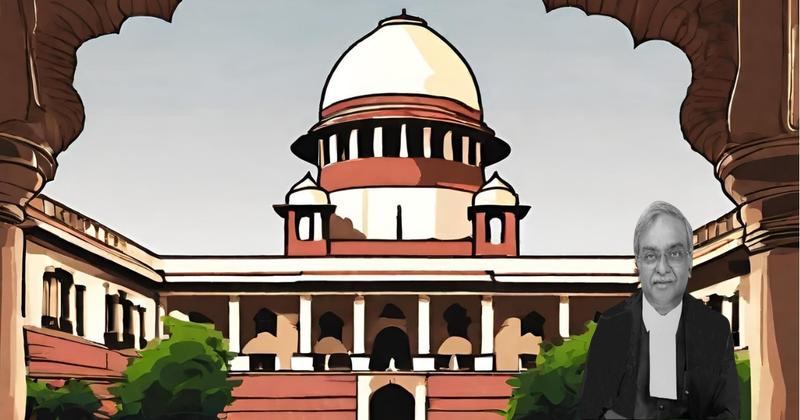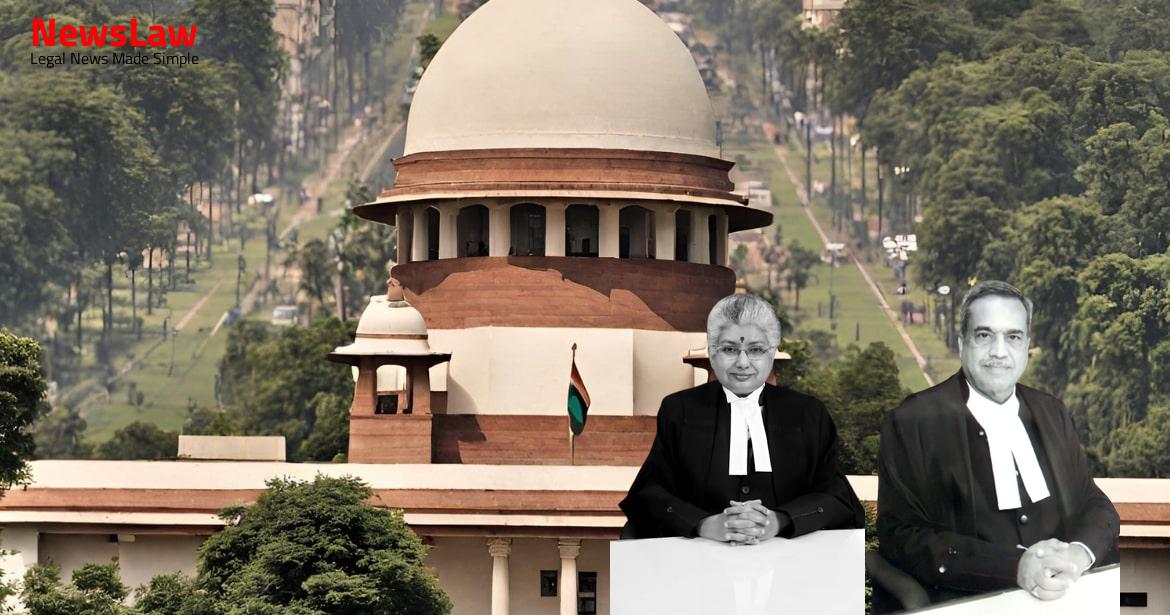Explore the nuanced legal analysis undertaken by the High Court in a recent case concerning the retroactive application of banking regulations. The court’s examination of the reasonable time frame for initiating proceedings and the significance of record preservation sheds light on the complexities of financial regulations. Stay informed about the intricacies of legal interpretations in the banking sector.
Facts
- Respondent-Bank filed a petition before the High Court of Delhi challenging the decision of the Adjudicating Officer.
- Show-cause notices were issued to the respondent-Standard Chartered Bank and others for transactions in 1992-1993, alleging violations of FERA.
- The High Court directed the Enforcement Directorate to provide specific instructions regarding the transactions.
- Adjudication proceedings were held against the respondent-Bank for contravention of FERA provisions.
- The respondent-Bank argued that prior to July 31, 1995, foreign currency deposits by individuals other than NRI Account Holders were allowed in NRE accounts.
- The Circular dated July 31, 1995, restricting only NRI Account Holders from depositing foreign currency, was contested as having no retrospective effect.
- The respondent-Bank replied to the show-cause notice regarding cash deposits in a specific NRE Account.
- Multiple appeals related to similar facts and legal questions are consolidated for joint consideration and disposal.
- Proceedings in response to show cause notices led to orders imposing penalty on respondent-Bank.
- Single Judge of High Court set aside show cause notice and related proceedings in April 2007.
- Review Application was dismissed by Single Judge in January 2009.
- Division Bench of High Court upheld the previous judgments in December 2009.
- Appellants filed Letters Patent Appeal against the judgments of Single Judge.
- Single Judge of High Court allowed the appeals and overturned the penalty orders in December 2010.
- Directorate of Enforcement filed Criminal Appeal against the decision.
- Division Bench of High Court dismissed the Letters Patent Appeal in March 2009.
Also Read: Court’s Jurisdiction in Re-appraising Arbitrator’s Findings
Arguments
- Ms. Aishwarya Bhati, learned ASG argues that authorized dealers must ensure pre-conditions are met before depositing foreign currency in the account of a non-resident.
- She relies on previous court judgments regarding the retrospective operation of statutory rules.
- Mr. Rajeev K. Virmani, representing Citi Bank, argues that the Circular dated 31 July 1995 made it mandatory for deposits to be made only by the NRI Account Holder.
- Different authorities have dealt with the issue differently, leading to contradictory decisions by Adjudicating Authorities.
- Ms. Aishwarya Bhati points out the urgency of show cause notices issued before the sunset period of 1 June 2002, highlighting the authority of RBI to issue directions for compliance with FERA provisions.
- She emphasizes the requirement for authorized dealers to ensure compliance with FERA provisions, with consequences for those attempting to contravene or abet contravention.
- The Exchange Control Manual, 1987 mandates authorized dealers to confirm the residency status and temporary visit of account holders before accepting foreign currency deposits.
- Ms. Aishwarya Bhati argues that the Circular merely clarified existing mandates rather than introducing new requirements.
- She challenges the High Court’s view on the retrospective operation of the Circular, citing an erroneous finding by the Enforcement Directorate.
- The provision also mandates authorized dealers to refuse transactions if the person does not comply satisfactorily.
- Dr. Singhvi argues that amendments cannot have retrospective effect unless explicitly provided for in the statute.
- Rule 3 of the Banking Companies (Period of Preservation of Records) Rules, 1985 states records need to be preserved for eight years only.
- Notices issued in 2002 for transactions in 1992-1993 were legally flawed due to the eight-year preservation rule.
- The court did not delve into other issues as it found the 2002 notices were invalid.
- Dr. Singhvi explains that a clarificatory circular, even if it is penal in nature, cannot impose penalties as only statutes can.
Also Read: Contrary Directions in Issuance of Letter of Intent
Analysis
- Initiation of proceedings must be within a reasonable period when no specific period is provided by the statute
- Banking companies must preserve records for a specified period as per rules and orders from the Reserve Bank of India (RBI)
- Inordinate delays in issuing notices or initiating proceedings can render them invalid
- Reasonable period for initiating proceedings depends on the facts of each case
- Absence of specific limitation period necessitates actions to be taken within a reasonable timeframe
- The power of the Commissioner to revise an order made under Section 65 must be exercised in a reasonable time, determined by the facts of the case and the nature of the order being revised.
- The absence of a prescribed period for recovery of duty under Rule 12 does not mean the power can be exercised at any time; such power must be exercised within a reasonable time.
- The validity of Rule 12 of the Medicinal and Toilet Preparations (Excise Duties) Rules, 1956, which did not provide for a period of limitation for initiating proceedings for recovery of escaped duty, was upheld by the Court.
- In the case of State of Madhya Pradesh vs Bani Singh and another, the Court found it unfair and unreasonable to continue departmental proceedings initiated in 1987 for alleged irregularities that occurred between 1975-77.
- Banking companies must maintain their books, accounts, and other related documents in good order.
- These documents must be preserved for at least five years preceding the current calendar year.
- This requirement ensures proper record-keeping and compliance with regulations.
- Permitting show cause notices and proceedings for transactions older than eight years is unfair and unreasonable.
- No error found in judgments of the learned Single Judge and Division Bench of the High Court of Delhi.
Also Read: Application for Stay in Civil Suit Rejected: Court’s Legal Analysis
Decision
- In the present judgment, no specific order has been given regarding costs.
- All pending applications have been disposed of.
- Both the Civil Appeals and the Criminal Appeals have been dismissed as per this decision.
Case Title: UNION OF INDIA THROUGH SECRETARY Vs. CITI BANK N.A. (2022 INSC 1318)
Case Number: C.A. No.-009337-009337 / 2010



